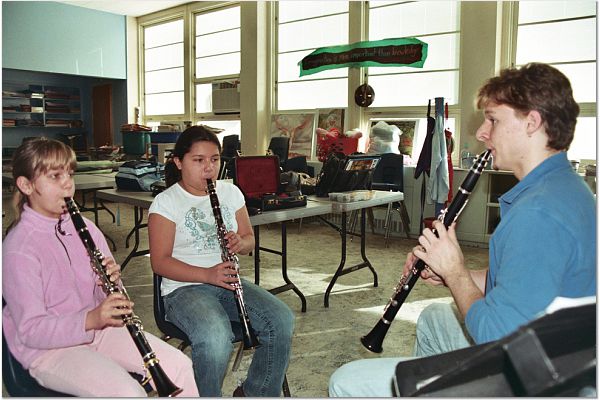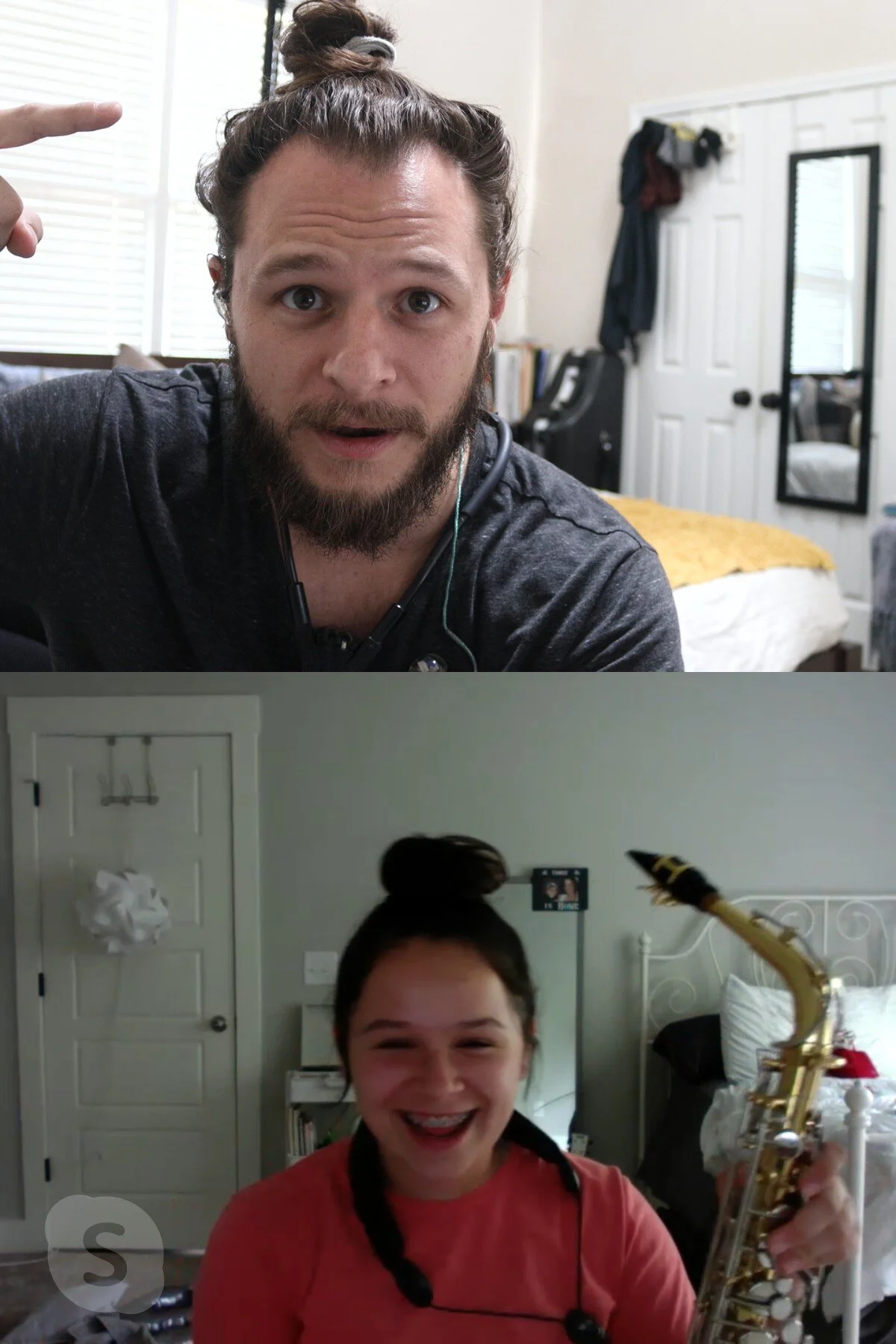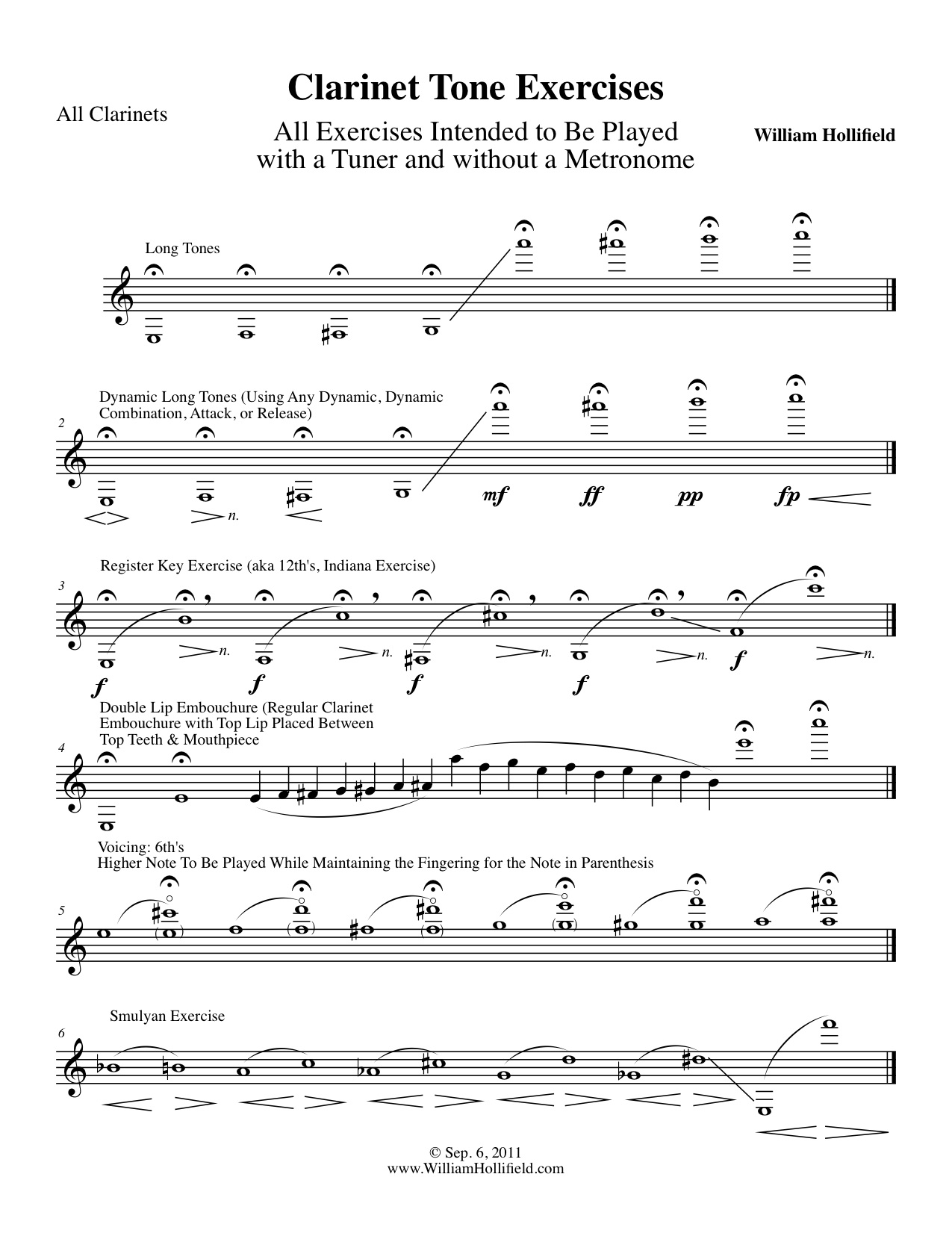 As you probably already know from reading my bio, I've been playing saxophone since I was six years old. That means I've been through a lot of reeds, mouthpieces, music, horns, and most importantly, teachers. I thought I could provide some tips on how to find a teacher based on what I've learned over the past few years.
As you probably already know from reading my bio, I've been playing saxophone since I was six years old. That means I've been through a lot of reeds, mouthpieces, music, horns, and most importantly, teachers. I thought I could provide some tips on how to find a teacher based on what I've learned over the past few years.
What Are Your Goals?
First, have a goal in mind of what you want to learn or what you are interested in musically. Then you want to make sure you have the right goal for a teacher. You want to find someone who has your musical interests in mind and the pedagogical skill to meet those interests. Do you want to learn to be the best jazz improviser you can be? Do you want to study classical repertoire? Or, do you just want to start playing an instrument and see where things go? Usually you can find that the best teachers can help no matter what you want to pursue. You don't want to do like I did and basically fall into the nearest studio, go through 2 or 3 teachers over about two and a half years, and finally, after lots of time and money spent, you find the best one in town.
Getting Lots of References
Contact at least a handful of people as possibilities or for a list of references to other teachers, especially people that are NOT in your area. One of the best ways to start your search for the best teacher is to call or e-mail the professors for your instrument at the major colleges in your state, preferably with the best music programs. If you can study with them, great! But, since these are college professors, many times you can expect that they don't accept beginners into their studio, their studio is full, or they charge a high lesson fee. They will however, usually provide you with a great list of references.
Try Out Multiple People
After you've contacted all of the colleges with major music programs in your state (this shouldn't take long - usually only 4 or 5 e-mails), you'll see certain names pop up multiple times. Start with these names by doing an internet search, see what they're qualifications are, check out their playing, etc. You should always check the person's musical background no matter what organization they belong too. KNOW WHAT YOU'RE GETTING YOURSELF INTO.
College Student Teachers, Private Teachers, and the Joy of Teaching
There are some main qualities you want from your private teacher. First and foremost, you want to make sure that they enjoy teaching. There are a good number of musicians that are good players but haven't honed their ability to teach just yet. Secondly, that they teach in a way that you see, hear, and feel results in your playing. Some of the people recommended may be current students or recent graduates. This may seem worrisome when you've just started playing, you don't know who's out there or who to trust. Whether they be an experienced veteran or just starting out, what you're looking for is the same.
Having taught privately while still in school and knowing people that did as well, you'll find people that are great teachers, are great with kids, have a real love for music, and most importantly a love for teaching. However, college students may still be getting a handle on their own teaching style, but are usually more of a bargain, can be more laid back, and are sometimes more flexible with when they teach.
Another good way to gauge the kind of teacher they are and the effort they put into the development of their students is to check out how they communicate with their students. Do they communicate via e-mail, phone, etc.? Do they answer questions on the practice material in between lessons? How do they set goals for your playing? How do they structure lessons and what do they focus on? Do they allow you to record your lessons or have a way of doing that themselves? Do they have a website, even a site with extra practice/helper material?
Check With Your Local Band Director
If you're looking for a teacher for your kid, many times their band director will flat out KNOW who are the best private teachers. Check with the elementary, middle, AND high school directors just like with the college professors. Eventually you'll get names that come up again and again.
Do Your Research
Chances are, unless you do your homework and come into contact with the right people at first, you'll probably go through at least one teacher before finding the best one for you. Don't fret though, the more you research and the more people you talk to the easier it will be. And don't forget, most of the time a teacher is just a guide. You'll find the more time you spend working, the better you'll get.
Teachers in the Atlanta and southern Georgia area that I have studied with and would recommend as a good starting point are:
- Randy Hunter (Professor of Saxophone @ Emory University)
- Sam Skelton (Director of Jazz Studies @ Kennesaw University)
- Dr. Scott A. Stewart (Director of Wind Studies @ Emory University, Director of Atlanta Youth Wind Symphony)
- Kevin Bales (Professor of Jazz Piano @ Georiga State University)
- Dr. Cary Brague (Director of Jazz Studies @ Valdosta State University)
- and me :-)

























